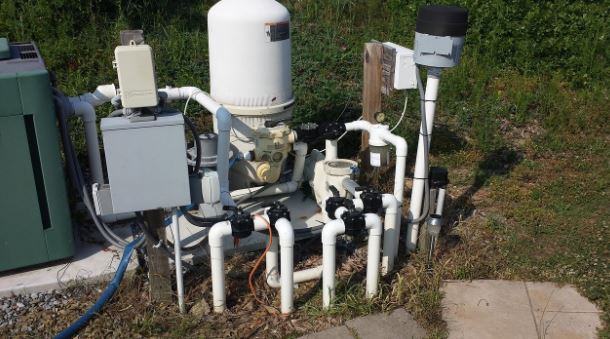
Water filters vary in performance, ease of use, and warranty and must reach EPA standards for safe drinking water. Most water filtration systems remove impurities through either a chemical process, physical barriers, or biological process. There are different types of drinking water filtration systems such as reverse osmosis, water distillers, ion exchange filters, ultraviolet disinfection and carbon block filters. All of these systems could either be used as under sink filters or countertop filters.
Reverse Osmosis
This type of filtration system uses semi-permeable membranes that filter waterborne contaminants and toxins that could be present in water. Reverse osmosis is considered one of the safest systems used by water suppliers, however, it is usually more expensive than regular filtration systems. Many options are available out there, from the more expensive to the cheapest, and it is recommended that you read detailed reviews before making a decision.
Reverse osmosis systems usually use 4 or 5 stages of membrane filtration compared to other filtration systems. This system is EPA approved and a good choice for all households.
Ion Exchange Softening
This type of system is most common in homes. Usually, a water softener removes calcium, magnesium, and other metals in hard water. The process involves ion exchange between the sodium and the magnesium/calcium. From this, the formation of scale is reduced by an electrolysis process, which separates the alkaline water from more acidic water.
The filtered water becomes much more efficient for appliances like dishes and clothes. The issue with softener water is that it has a higher sodium content and when used for drinking it increases the probability of cardiovascular disease.
Distillation
In some circumstances, water that is safe for drinking can be produced through boiling, evaporation and condensed vapor into distilled water. This three-step process helps eliminate toxic substances, organic/inorganic chemicals, and heavy metals similar to the reverse osmosis system. It also kills all bacteria or pathogens that make humans sick. Distillation passes all EPA standards for drinking water, however, it is usually much more expensive than other filtration systems.
Carbon Block Filters
Additionally, when filtering tap water they can remove the chlorine taste and odor that comes from your city’s filtration system. Some of these filters also reduce sediments like rust found or sands that can be found on your pipes. Most carbon filters are approved by EPA standards for safe drinking water, in fact, the good ones can remove turbidity and protozoan cysts that cause diarrhea.
Ultraviolet Disinfection
One of the newest technologies on the water purification markets are ultraviolet filters. Ultraviolet radiation is used to treat the water by destroying most bacteria that can be damaging to your health. It is a very effective way to kill bacteria like different viruses or protozoan cysts because it attacks their genetic core and disables them.
Ultraviolet disinfection can be considered a natural way of filtrating drinking water because it has no chemicals. The problem with this type of filtration system is that it is very expensive simply due to the low quantity that it can purify and the time that it takes.
The above methods are the most common filtration methods used for drinking water that is approved by EPA standards. Picking a water filtration system for your business will need a lot of research. It is advisable that proper research and installation is done. Knowing the proper drinking water flow rate required for your business is key. As the more flow rate required the higher the cost. Industrial water filtration systems can range from $1000 to $1,000,000. It is also important to know your target purity and what chemicals show up more in your geographical area.
_________________________________________________________
Interesting related article: “How Germany’s wastewater management benefits business.”
